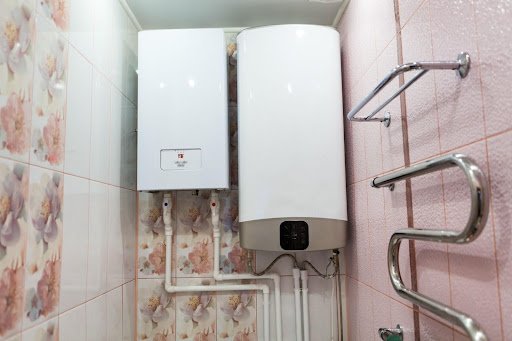It’s a battle that has raged on for years, with proponents of each side fiercely defending their preferred method of heating water. Some argue that gas is the way to go, offering faster heating times and lower energy bills, while others swear by the reliability and ease of electric water heaters.
But why stop at just comparing the two? Let’s take a closer look at the science behind each method of heating water, and delve into some of the fascinating quirks that make them both unique. From the high-heating nature of gas to the mysterious properties of electricity, we’ll explore the ins and outs of hot water heating in a way that’s both informative and entertaining.
Whether you’re a household LPG enthusiast or a dedicated electrician, get ready to learn something new. Who knows, you might just come away with a newfound appreciation for the other side of the hot water debate. After all, when it comes to staying warm and cozy in the shower, we’re all on the same team.
So before settling the score, let’s take a look at what each heating method has to offer.
Heating Water with Electricity
1. Resistive Heating
Joule effect or resistive heating is when an electric current flows through a conductor and encounters resistance which, in turn, generates heat. In the case of an electric water heater, the heating element serves as the conductor, and the water flowing around it provides resistance. This creates a steady and consistent source of heat that can be precisely controlled.
2. Efficiency
Another unique property of electric water heating is the fact that it’s extremely efficient. Unlike gas heaters, which can lose heat to the surrounding environment, electric heaters are able to deliver nearly 100% of their energy input as heat to the water. This makes them a popular choice for small apartments and homes, as they take up less space and can be installed in tight quarters.
3. Safe and Reliable
Finally, electric water heating is known for its safety and reliability. They don’t produce any harmful gases or flames, and they’re not subject to the same types of wear and tear that can affect gas heaters over time. Overall, electric water heating is a fascinating and effective way to keep your hot water flowing.
Heating Water with LPG
1. High Heat Content
LPG has a high heat content, which means that it can quickly and efficiently heat water to high temperatures. This is due to the chemical composition of propane, which has a higher energy content than other fuels like natural gas. This property makes gas a great choice for water heating applications in colder climates or areas with high hot water demand.
2. Combustion Properties
Gas produces a hot flame that can quickly transfer heat to the water. However, combustion also produces water vapour and carbon dioxide, which can create moisture and cause corrosion in some types of water heaters. To prevent this, it’s important to properly maintain LPG water heaters and ensure they’re vented to the outside to avoid any harmful emissions.
3. Portability
LPG is a portable fuel, which means that it can be used in a variety of water-heating applications, including outdoor or off-grid settings. This is due to the fact that propane can be easily transported in tanks, making it a popular choice for RVs, camping trips, and outdoor events.
Additionally, LPG can be stored for long periods of time without losing its quality or potency, making it a convenient and reliable fuel source.
Which is a better option? Gas vs Electric Hot Water
Choosing the right hot water system for your home is an important decision. There are many factors to consider, including cost, energy efficiency and environmental impact. It’s important to weigh up all the pros and cons of both gas and electric hot water systems before making a decision.
One of the main considerations is cost. LPG systems tend to be cheaper than their electric counterparts in terms of upfront costs and ongoing running costs. Although this can vary depending on your location and other factors such as the availability of gas bottle suppliers or access to solar power for electricity discounts.
Ultimately, it’s important to compare both gas and electric water heating systems before making a decision on which one is right for your home. And the decision rests in your hands and the factors that you need to consider.
However, as LPG has become a popular and sustainable fuel source across the globe, it may be best to consider LPG water heating systems. Not only are they safe but also cost-effective and reliable. They also allow you to benefit from the convenience of portable tank storage, making them perfect for off-grid applications.
And if you’re looking for a reliable LPG supplier in Brisbane, look no further than Plus Gas – you surely can’t go wrong!
